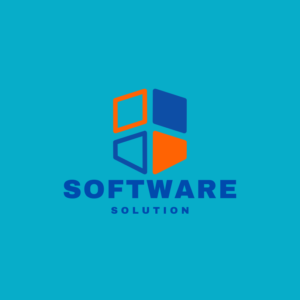This is why the roles of a Data Analyst vs Software Engineer are critical for the success of all domains in a data-driven world. However, while they share a technological foundation, the two roles are intended for different purposes and require different skill sets. So, if you are new to the tech world or already have some experience, you are thinking about whether you want to go towards one of these roles or another, and you want to know the difference between these two.
What is a Data Analyst?
A Data Analyst is someone who collects, analyzes, and processes an organization’s data to enhance decision-making. They work with large data volumes to extract insights and trends, which they then report to guide business strategy. Their role is to transform raw data into practical insights that improve processes, enhance customer experiences, and inform business decisions.
Key Responsibilities:
For more realistic examples, here are a few possible sample projects you can try out: Data Acquisition: Gather Data from Different Sources (databases, spreadsheets, APIs)
Data Cleaning: This is the process of cleaning the raw data, for example, removing errors in data and making it usable.
Data Analytics: Using statistical tools and software to find patterns, correlations, and trends, you analyze data sets.
Visualizations: Visualizations like charts, graphs, and dashboards convey data insights in an easily digestible format.
Reporting: Prepare reports and presentations to share findings with stakeholders in a >> non-technical manner.
Key Tools and Technologies:
- If you have data skills (Excel, SQL, Python, r, tableau, Power BI, Google Analytics}’)
- Tools and databases for statistical analyses (MySQL, PostgreSQL, etc.)
Skills Required:
- Strong analytical and problem-solving skills.
- Computer programming skills (Python, R, SQL, etc.)
- Solid knowledge of data visualization tools (e.g., Tableau, Power BI)
- Statistical techniques and machine learning.
- Salary (United States Average): $60,000-$90,000 annually (varies with industry and experience).
What is a Software Engineer?
A software engineer is responsible for building, designing, troubleshooting, and managing software applications. They create the systems and applications that power organizations and industries, whether they’re mobile, cloud-based, or enterprise systems. Unlike Data Analysts who use data to aid decision-making, software engineers develop tools and technologies that solve problems and optimize processes.
Key Responsibilities:
Are you in software development with exposure to apps, websites, back-end, a back-end senior software, re-engineer, or something similar?
Systems Design: They should create and design software solutions or a portion of them.
You are trained on data until October 20, 2025,
Team: Work with other engineers, designers, and stakeholders to create software solutions
Maintaining and debugging, making sure software tools are working correctly
Key Tools and Technologies:
- Programming: Java, Python, C++, JavaScript, Swift, Ruby, PHP.
- Event-driven frameworks and platforms (Kafka, Spring Boot, etc.);
- Version control tools like Git.
Skills Required:
- Strong understanding of programming languages.
- Knowledge of software development lifecycle methodologies like Agile and DevOps.
- Reasoning or Problem-Solving Skills
- They’ll need to work in teams and collaborate on larger-scale projects first.
- Experience with markup languages, cloud computing, databases, and back-end and front-end technologies.
Compensation (average, U.S.): $80,000 to $120,000 annually (depending on experience, geography, and sector).

Key Differences Between Data Analysts and Software Engineers
| Aspect | Data Analyst | Software Engineer |
|---|---|---|
| Primary Role | Analyzes data to generate actionable insights. | Designs, develops, and maintains software applications. |
| Key Skills | Statistical analysis, data visualization, SQL, Python. | Programming, system design, problem-solving, coding. |
| Key Tools | Excel, SQL, R, Tableau, Power BI. | Java, Python, C++, React, Git, Docker. |
| Work Focus | Interprets data trends and creates reports. | Builds software solutions for end-users. |
| Interaction with Clients | Reports data insights to non-technical stakeholders. | Works on the technical aspects of projects with teams. |
| Educational Background | Degree in data science, statistics, economics, or similar fields. | Degree in computer science, software engineering, or related fields. |
| Typical Industries | Finance, marketing, healthcare, retail. | Tech, gaming, finance, cybersecurity, healthcare. |
| Job Growth | 25% growth (faster than average for other professions). | 22% growth (much faster than average for other professions). |
When to Hire a Data Scientist Instead of a Software Engineer (and Vice Versa)
Choosing your next career as a data analyst or software engineer depends on your interests, skill set, and long-term goals.
Choose Data Analyst if:
- You’re into the numbers and the stats.
- You wish to translate data into actionable business insights or usable information.
- You love creating data visuals and reports to drive decisions.
- You want to enter finance, marketing, or healthcare, where the demand for data-based insights is significant.
Choose Software Engineer if:
- And you like writing code to make complicated issues solvable.
- You enjoy designing, building, and maintaining software applications.
- You enjoy collaborating with teammates to develop new technologies and systems.
- You will be working in tech, gaming, or cybersecurity industries as the software development and application development process runs the business operation.
Similarities between Data Analysts and Software Engineers
However, the roles of a data analyst and a software engineer somewhat overlap despite some differences.
We Need The same PROBLEM-SOLVING Method Skills: Analytical and problem-solving skills are essential in both roles to identify challenges and develop practical solutions.
Technical skills: Both career paths use programming languages such as Python. Python For Data Analysis This is the second stage and is considered between 0 to 3 years. Data Analysts, Data Visualization, and Software engineers use Python to build applications.
Team collaboration: While software engineers collaborate with other developers to craft software solutions, data analysts collaborate with stakeholders to grasp business needs.
How to Make a Decision That Is Right for You
Choosing between a Data Analyst career and a Software Engineer career comes down to deciding what you are more interested in and what you are more proficient in, skills-wise. Data analytics has a variety of components, including data cleaning and data preparation; if you are interested in how data makes or breaks business decisions, data analytics might be a good choice! However, if your love is to write code, design systems, or software applications, then the career path of a Software Engineer would be better suited for you.
Both Data Analyst and Software Engineer roles offer rewarding career paths with strong job prospects, competitive salaries, and ample growth opportunities. Before making your choice, it’s important to assess your interests, skills, and career aspirations. Remember, whichever path you choose, you’re stepping into a dynamic and promising field.
Conclusion:-
In summary, the roles of Data Analyst and Software Engineer, while distinct, are equally vital in the tech landscape. While Software Engineers focus on designing and implementing software applications, Data Analysts are instrumental in interpreting data to support decision-making. Both roles offer excellent job prospects and are rewarding in their own right. Ultimately, your choice should be guided by what excites you more — working with data to derive insights or working with software to solve technical problems.
